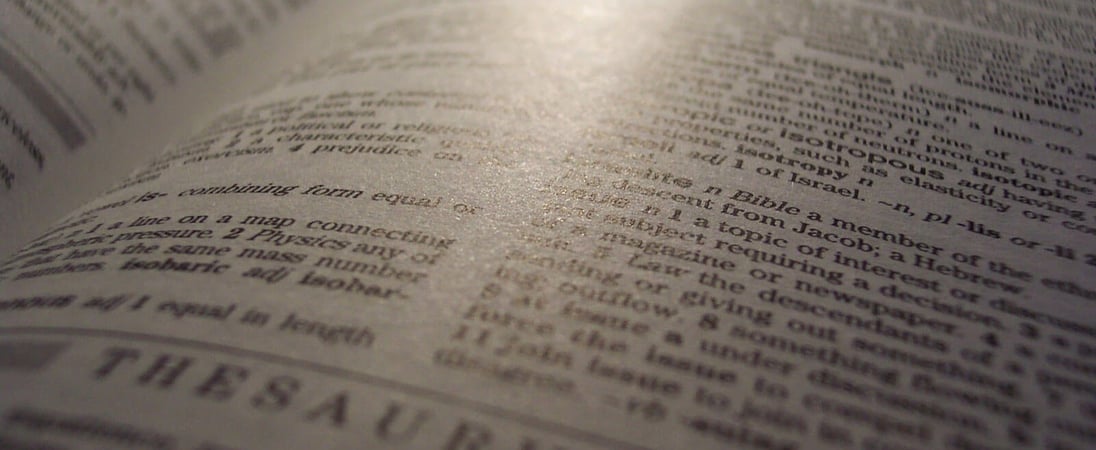
Big Word Day
Elevating language with substantial expressions, conveying ideas with impactful verbiage for enriched communication and comprehension.
It’s time to exchange those everyday terms with a larger vocabulary that embodies gigantic words that are filled with more fun and adventure. Forget those miniscule words that are ordinary and get used every day and trade them out for something brighter and more remarkable.
Plus, it’s fun to take advantage of a delightful opportunity to sound much smarter by getting on board with Big Word Day!
How to Celebrate Big Word Day
Show some love for language and large words by celebrating Big Word Day with a variety of ideas and activities. Get started with some of these ideas:
Consult a Thesaurus
One of the best tools a person can have when they are trying to build their vocabulary is the thesaurus. This book offers a whole host of help when looking for a word that is like another word – but better. For instance, look up the word for “big” and come up with a range of terms that might be more interesting and, well, bigger.
Have fun on this day trying to make the most of the words used by changing them up throughout the day! For instance, instead of Big Word Day, perhaps it would be fun to refer to this day as “Monstrous Vocable Day” or “Gigantic Expression Day”.
Consider Some Very Long Words
Perhaps it would be fun on Big Word Day to take some time to learn some very long words that can then be used to impress friends, family members and coworkers. Do a little internet search for long words, or check out a few of these to get started with:
- Pneumonoultramicroscopicsilicovolcanoconiosis: Probably the longest word in the English language (not counting technical words) at a whopping 45 letters, this word is a medical term to describe a lung disease that comes from inhaling particles from a volcano.
- Floccinaucinihilipilification: Another very long word, with 29 letters, means the estimation of something that has no value. Of course, because it is so long, this word hardly ever gets used!
- Antidisestablishmentarianism: Up next at 28 letters is this word that was originally coined in relation to the Church of England but is now used regarding those who opposed the removal of government support for a religious expression or church.
- Incomprehensibilities: Though not quite the next longest, this one is important because it is one of the longest words in common use in the English language. Its definition means something that is impossible to understand, or imagine.
Sing Some Songs with Big Words
Feeling musically inclined on this day? Then get involved in celebrating Big Word Day by singing or listening to some fun songs that have large or unique vocabulary words in. Make a playlist on Spotify, Apple or some other music hosting platform and then listen to it all day as a perfect soundtrack for this day. Check out some of these songs that have interesting titles to get started with:
- Spider Fingers by Bruce Hornsby (1986). This song uses the word “prestidigitation” which means sleight of hand or conjuring.
- Famous Groupies by Paul McCartney (1978). This one from a former Beatle offers a number of interesting words including “pulchritude”, “proscenium” and “perambulations”.
- Verisimilitude by Teenage Fanclub (1995). The title of this song offers a glimpse into a big word that means being real or true.
History of Big Word Day
Every language in the world has a vast body of words that are used to make up ways to communicate about various activities, happenings, thoughts and ideas. And if there isn’t a word for something in the English language? Usually people borrow one from another language, or they simply make up a new word!
The folks over at the Oxford English Dictionary estimate that the English language has approximately 170,000 in current use and another more than 40,000 that are archaic and out of use. In fact, English offers a prolific number of words and has one of the largest bodies of vocabulary of any modern language.
But even with access to such a huge number of words, most people only use just a fraction of this vocabulary on a regular basis. Most native speakers know about 20,000 to 35,000 words, but still only use maybe 5,000 – 10,0000 on a daily basis.
As the English language continues to grow and change, Big Word Day was founded to pay honor and respect to the ever-evolving beauty that comes from words, language, and vocabulary today and throughout human history.
Also on ...
View all holidaysNational Tea Day
Just because we dumped all that tea in the harbor, doesn’t mean we don’t enjoy the relaxing, warm drink. Visit a Fest-Tea-Val, or simply enjoy a steaming mug of tea.
World Creativity and Innovation Day
View the world in a different way on World Creativity and Innovation Day, by thinking about creative solutions to a problem or engaging with other thinkers and creators.




